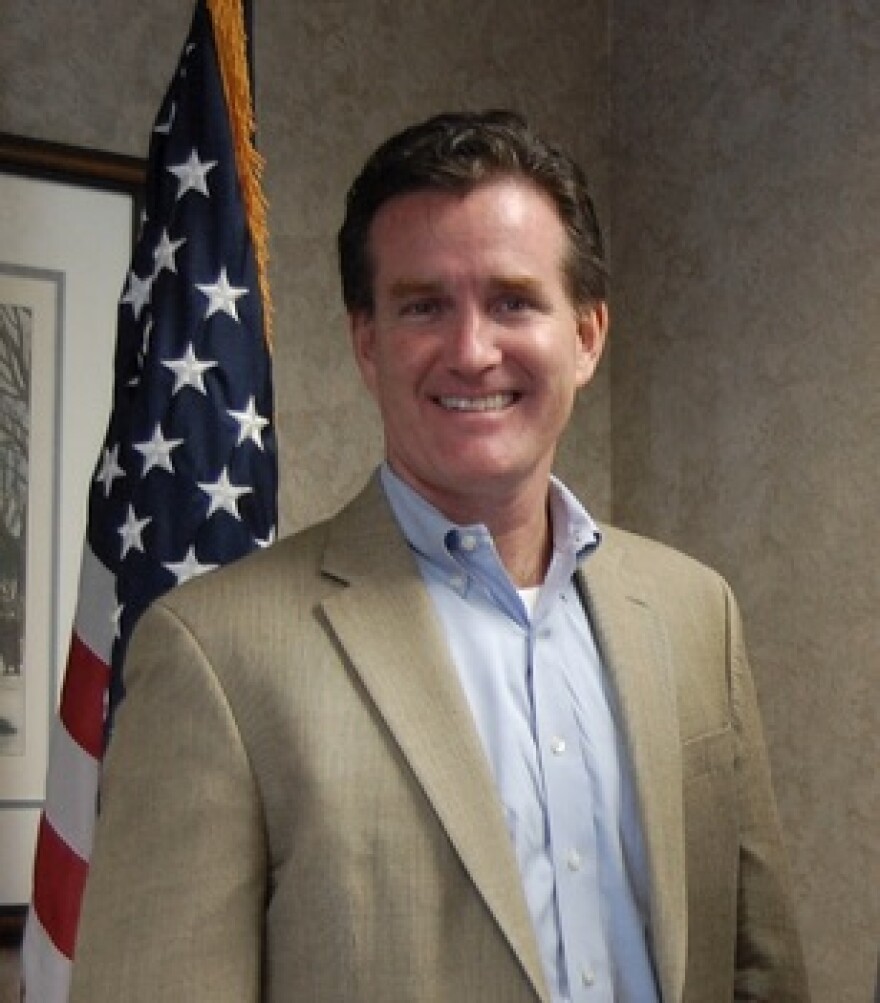The new leader of the New York State Senate, John Flanagan, replaced Dean Skelos, who is facing corruption charges. On day two in office, Flanagan says he does not expect any major new reform legislation to happen before the end of the session.
Flanagan says he does not think that further ethics reform will be enacted in the remaining weeks of the legislative session, despite an ongoing corruption scandal that cost his predecessor his job.
“I would be surprised if there were further changes before the end of the session,” Flanagan said. “But that doesn’t mean that the subject won’t come up.”
Flanagan, in a meeting with reporters, says some “aggressive” reforms were already enacted as part of the state budget. They include fuller disclosure of private law clients, improved accountably of lawmakers’ daily expense accounts, and forfeiture of the pensions of lawmakers convicted of crimes.
The new Senate leader does not see the problem as systematic, but rather the actions of a few bad actors. But he admits it casts a pall over the Capitol.
“I’m saddened, frankly, when any of this happens,” he said. “The reality is if one person gets named in some way or castigated or charged, that does have an effect on everybody.”
The new Senate leader is himself facing greater scrutiny, in the wake of the charges against his predecessor.

Flanagan quit his private law practice last week, but is not voluntarily disclosing his clients. He says he will comply with the new laws approved in the budget but they will not take effect for several months. Flanagan says he has not represented any clients that have business before the state, and is unaware of which of his firm’s clients have interests before state government.
“I’m telling you I don’t know,” Flanagan said.
When he was told by a reporter that the firm does indeed have several clients with business before the state, Flanagan talked of past attempts by the legislature at fuller disclosure, that have yet to be completed.
“We passed a law a couple of years ago that required a database to be put out to the public which has never been accomplished,” he said. “I still think that should be done.”
Democrats in the Senate have been pushing a bill to close a loophole in existing campaign finance laws. It permits individuals and corporations to create Limited Liability Companies, or LLC’s, to donate money and skirt existing donor limits. The bill was voted out of the elections committee and is currently before the Committee on Corporations, Authorities and Commissions, which does not meet regularly.
LLC’s have figured into the corruption charges against both Skelos, and former Assembly Speaker Sheldon Silver. Both accepted LLC donations from Glenwood management, a real estate company. Glenwood has not been accused of any wrong doing, but its senior executive has become a cooperating witness in the Skelos case.
Flanagan, like many senators, other lawmakers, and Gov. Andrew Cuomo, has also received campaign donations form Glenwood management.
Flanagan did not offer his opinion on the LLC bill, but says republicans will be talking it over in their private party conference meetings.
“It would be precipitous of me to suggest what the conference will do,” said Flanagan. “I guarantee that will be a discussion that the conference will have.”
Blair Horner, with the New York Public Interest Research Group, a long time advocate of reform, says changes are not likely to happen until the remaining federal investigations are concluded. U.S. Attorney Preet Bharara, after the arrest of former Speaker Sheldon Silver and after former Skelos’ surrender to authorities, has said to “stay tuned."
Horner says, unlikely as it sounds, it seems that Albany has not yet reached its “tipping point," despite five Senate leaders, two Assembly speakers and the previous two governors having trouble with the law.
“I don’t know what it takes, frankly,” Horner said.
Horner says it’s now up to Cuomo to propose any additional reforms. He says in the past, it’s been the executive, not the legislature who drives change.



